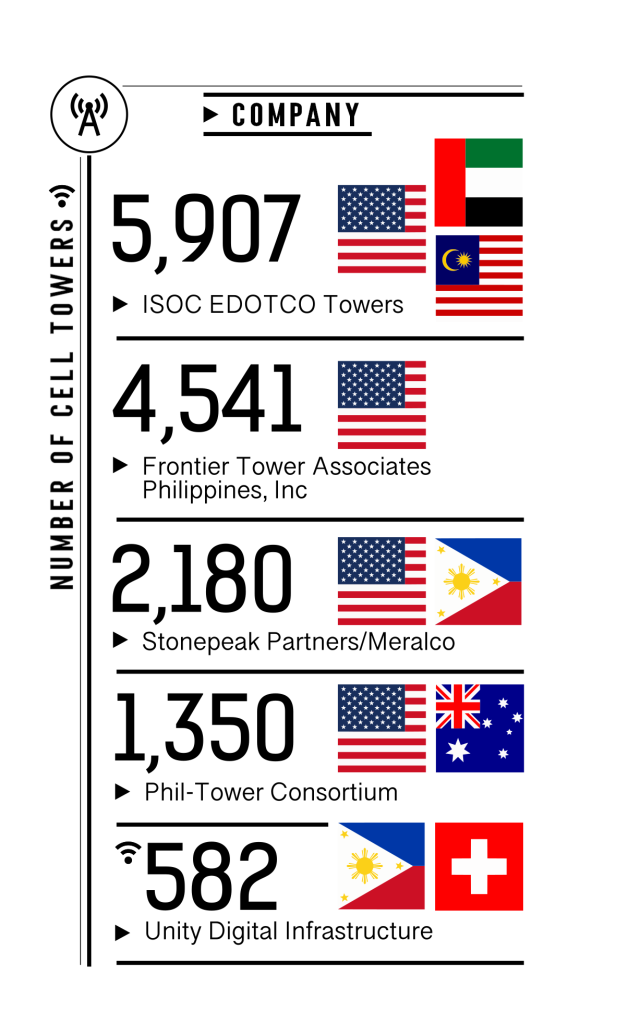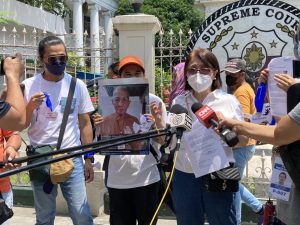Foreign control of cell towers


China’s 40% ownership of the Philippine’s national electric grid system was a hot topic in the Senate recently. Senators said it is dangerous for a service with national security importance to be in the hands of a foreign entity. However, in contrast to how much they were “concerned” with foreign control of power transmission, they are now rushing to pave the way for foreign control of another critical public utility infrastructure—the cell towers that serve as the backbone of telecommunications services.
The reactionary state has actively pushed and supported total foreign ownership of cell towers that serve private and public communications in the country. In 2020, the Common Tower Policy scheme was implemented which allowed foreign companies to construct and operate cell towers. Senator Grace Poe pushed the scheme purportedly to “break up” the Smart/PLDT and Globe duopoly in the telecommunications sector. This was followed by an amendment to the Public Services Act which permitted 100% foreign ownership in the entire sector.
Since 2020, PLDT/Smart and Globe sold their cell towers gradually, primarily to US companies and their partners. They will continue to use them under a “lease back” agreement with the buying companies.
The state allowed the buying companies to expand coverage, amplify the signal and “digitize” cell towers for 5G communications. In addition, they and 19 other companies were granted permits to build up to 50,000 new cell towers. Only five of these companies are Filipino. Today, there are only 22,405 cell towers in the Philippines.
Foreign capitalists, especially American companies, are drooling over the telecommunications sector because of the enormous potential revenue from its diverse infrastructure.
In addition, the Philippines is a major market for telecommunications services. According to a study released in February, 85.16 million Filipinos use the internet and 163.3 million have a cellular connection (equivalent to 144.5% of the population). Apart form this, Filipinos spend the longest time on the internet globally, with an average of nine hours and 14 minutes online daily. 5G service is seven times more expensive than the current mainstream LTE and 4G services.
A national security issue (for the US)
The US does not conceal the fact that it considers Philippine local telecommunications a matter of its own national security, especially in terms of cybersecurity. A US embassy in the Philippines claim that 90% of Wall Street’s financial transactions pass through the Philippines. The US is pushing a $33-million BEACON project to build infrastructure, set local cybersecurity policies and train Filipino workers to ensure cybersecurity of American companies and transactions in the country.
The US is also building its own telecommunications infrastructure as part of its war preparations. It was announced in January that the United States Trade and Development Agency will fund the construction of Now Telecoms as the fourth telecommunications company in the Philippines. The company is said to compete against Dito Telecommunity which is 40% owned by China.
It is extremely ironic that the communications system in the Philippines will be placed under the control and scrutiny of the US government, since the US is one of the biggest states involved in mass surveillance of its citizens. Among the surveillance programs that the US implements is the so-called PRISM project, which collects all emails, images, documents, and other sensitive information in connivance with several large companies. This is in addition to Dishfire, ECHELON, INDECT, and others.










